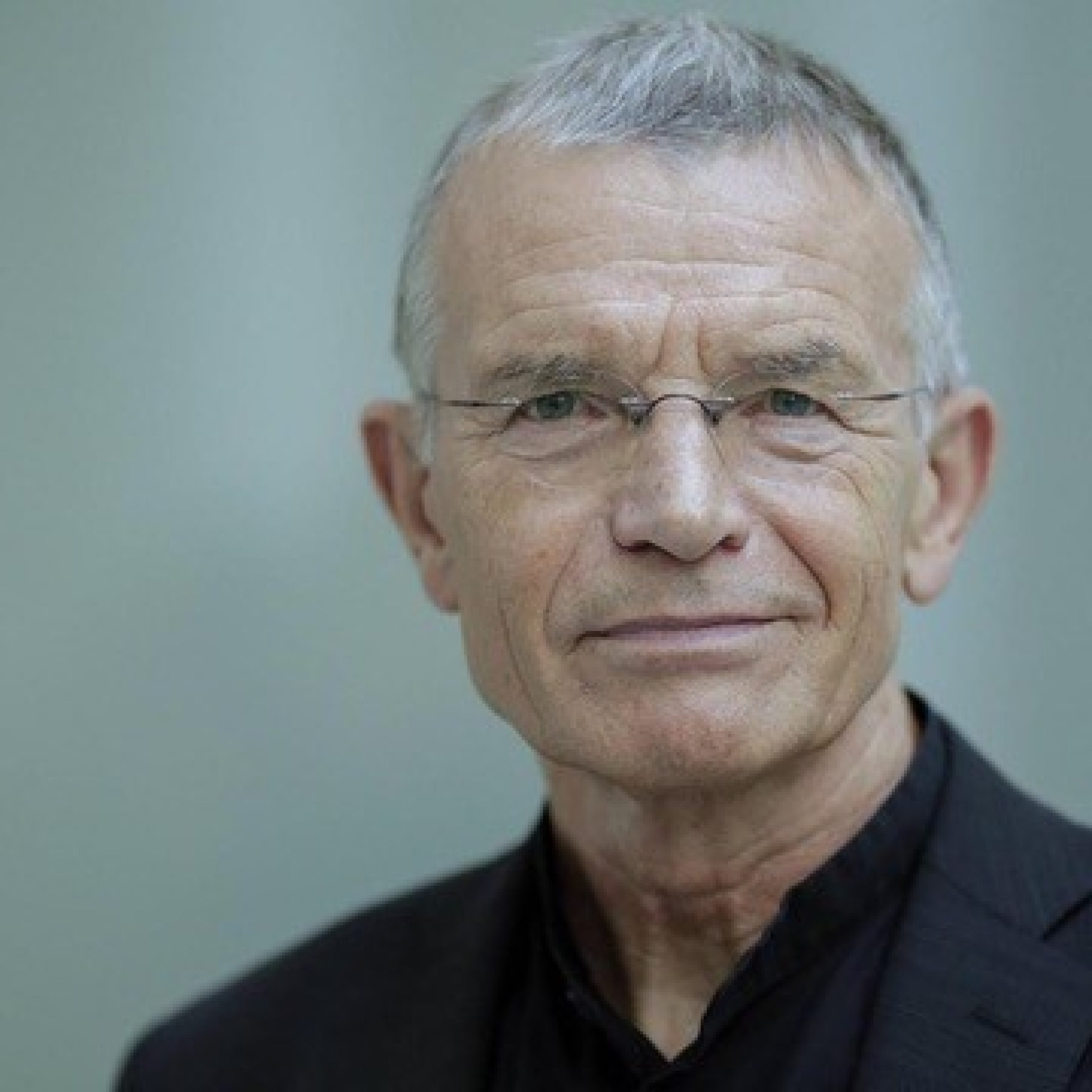How do Generation Z’s experiences of crises affect the way young people plan their lives, their work ethic and their pension planning? An interview with Klaus Hurrelmann, the German youth research expert.
Mr Hurrelmann, you have had your finger on the pulse of the younger generation for decades now. What particularly stands out about Generation Z, those born at the turn of the millennium?
What is remarkable and perhaps unique is the paradoxical life experience that young people are currently having: they experience the world as very negative on the one hand, but also as very positive on the other. And both of these views shape the mindset of this generation. It is both pessimistic and optimistic at the same time.
What do you mean by optimistic? Climate change, the coronavirus pandemic, the wars in Ukraine and Israel – people aged under 25 today have grown up with crises.
That’s true. What is even more serious is that these crises are ongoing and overlap. That’s why I’m talking about a young generation in permanent crisis mode. This, of course, clouds the way that Gen Z view the future. Many suffer from stress and are exhausted. But – and this should not be overlooked – in terms of their education and professional lives, young people today have unique opportunities that haven’t existed in decades. As the baby boomers leave the workforce, there will be an enormous labour shortage in the coming years. So the young generation has excellent prospects. This shapes their mentality and goes some way to making up for the many crises in their lives.
Does this apply to all young people in Europe?
This applies to many countries, especially in German-speaking countries and northern Europe. Key factors here include the social structures and economic conditions in the countries. In southern European countries such as Italy or Spain, where youth unemployment is still very high, young people are more pessimistic about the future. France is somewhere in between.

How financially confident is Generation Z?
Despite their good prospects in the labour market, young people are worried about their financial security. Inflation is the number one concern in Germany (71%), as our “Youth in Germany” study (German only) has shown. It is also striking that many young people see major problems with planning their retirement. In Germany, three quarters of 14 to 29-year-olds surveyed are afraid of receiving a lower pension when they retire and falling into poverty in old age.
The mood is very similar in Switzerland. According to Swiss Life’s 2023 self-determination barometer, just 32% of 18 to 29-year-olds believe that their pension will be sufficient to lead a self-determined life in old age. Is Generation Z now saving more for their old age?
Young people are aware that they are responsible for planning their retirement, but they are not taking the necessary steps to do so. For example, while around half of young people in Germany save for their old age, only 37% regularly set aside money for this. For many, their income offers little scope for making long-term investments. . Furthermore, there are not enough products aimed at young people or realistic investment opportunities. In this respect, young people feel somewhat helpless and frustrated.
According to a survey by Swiss Life Germany, 28% of Generation Z have invested in equities. Will equities become the new savings account?
The younger generation’s interest in making return-oriented investments has actually skyrocketed. In Germany, equities and funds even ranked first as a form of savings in 2022, for the first time. This shows that Generation Z is reacting rationally to the continued low interest rates. At the same time, however, they also have high expectations of the state, which they expect to take responsibility and provide a good state pension.

Has digitalisation improved young people’s financial literacy?
Only a little. Young people’s financial literacy is far from ideal and depends heavily on their general level of education. When they do their own research on the internet, young people quickly realise that there are many unreliable sources and that it is quite complicated to find what you need on your own. The vast majority would like to receive a lot more information about money and investments at school. This would also be particularly important for young women, because emancipation seems to struggle when it comes to financial issues.
In what sense?
In tests on the topic, young women perform significantly worse than young men. They are much less willing to deal with pension-related issues, which is reflected in their far-from-ideal investment behaviour. Strangely enough, there is still the idea that in a partnership, the man should make the financial decisions. This is all the more surprising given that women on average have a higher level of education and also want to increasingly pursue professional careers. We therefore need initiatives that specifically encourage young women and support them in taking charge of their financial future and retirement planning.
How important is it to Generation Z that they earn a lot of money?
Very important. Given their increased fears over inflation, at least for Germans, their salary has even become the most important factor when choosing a job; previously, they prioritised work-life balance and leisure time. In our study, 60% of young people said that money was the key motivating factor when choosing a job, followed by enjoyment at 43%. The purpose, that is to say how meaningful their work is, is now particularly important for only 22% of those surveyed.

At the same time, many young people want to work less. Why do they think so differently from their parents and grandparents?
Generation Z has been unsettled by the many existential crises they have experienced – the future seems uncertain to them. They also believe that they will not be able to become as wealthy as their own parents. Finally, they assume that they will have to work longer and may never live to retire in the current sense. All of this leads to them not being too attached to the workplace and wanting to ensure that their quality of life does not suffer as a result of their job. They don’t want to work overtime, they like to leave early on Fridays, and some days they don’t want to work at all. In short, Gen Z wants to work flexibly and in a self-determined way.
Can this attitude to work be included under the much-discussed term “quiet quitting”?
Yes, but you can’t understand the term literally. The expression was coined by a young American who summed up the new work ethic in a viral TikTok video, “Work is not your life.” So it is not a matter of silently quitting your job, a lack of motivation or even refusing to work. It’s more the worry of being part of a process that will eat you up and even damage your health. The metaphor stands for how you set internal boundaries to avoid burnout. That’s why I think the term “built-in burnout barrier” is more appropriate.
What does this mean for employers?
If a company wants to be attractive to young people, it must respond to the requirements and expectations of Generation Z. This means listening carefully, involving young employees in the decision-making process and thinking about how they can help shape their day-to-day work.
Is the gap between old and young bigger than ever?
No. Generally speaking, values differ only slightly between the generations. And it has always been the case that older people have certain reservations about the young. The otherness of Gen Z is a disruptive factor for society – and disruption is always a prerequisite for innovation.

Klaus Hurrelmann
Klaus Hurrelmann is the most prominent youth and generational researcher in Germany. He is a Professor of Public Health and Education at the Hertie School of Governance in Berlin and has been conducting comparative studies on attitudes, values and behaviours of adolescents since the 1980s. This includes the famous “Shell Youth Study” and since 2019, Hurrelmann has published the regular “Youth in Germany” trend studies. The social scientist is the author of many textbooks and was a member of the Expert Council on Demography at the German Federal Ministry of the Interior.



